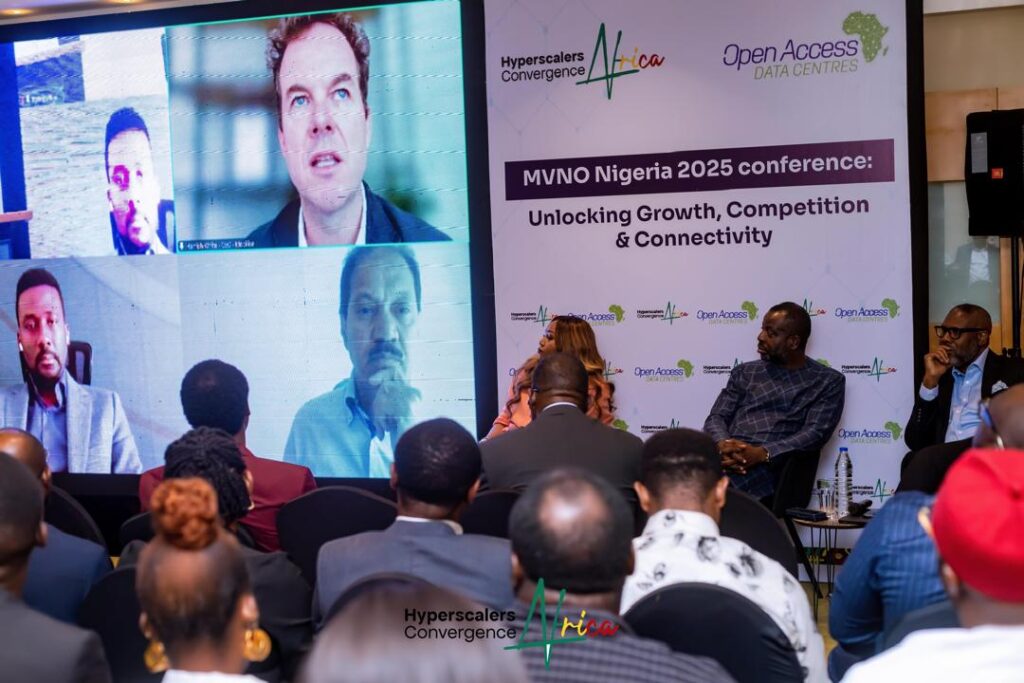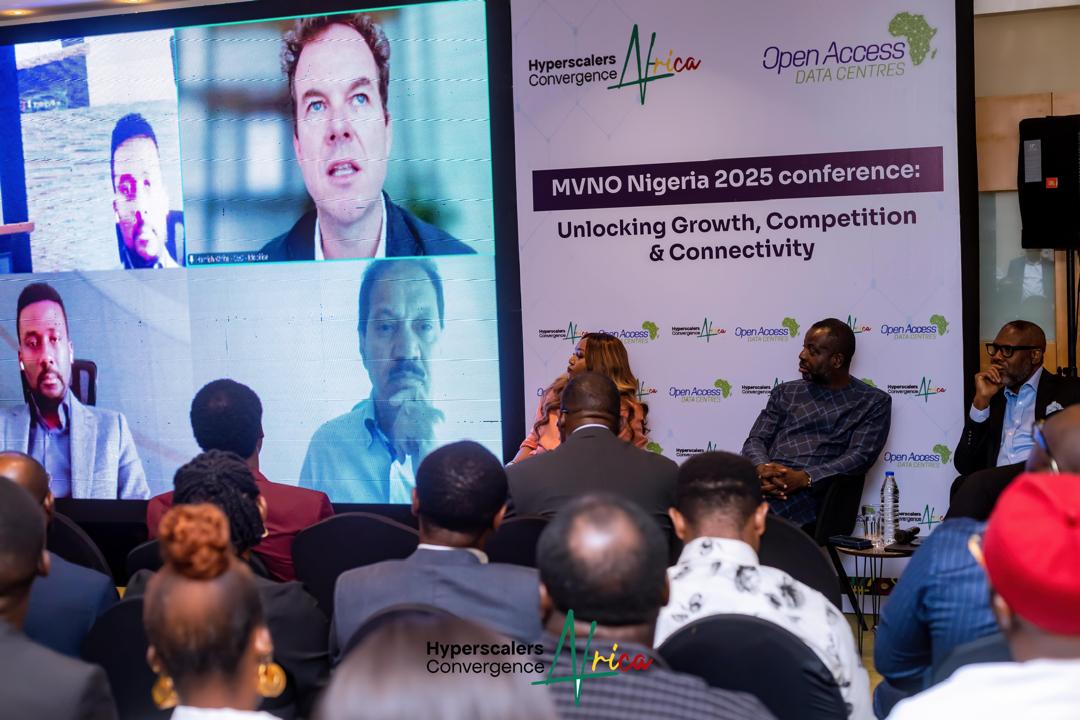The MVNO Nigeria 2025 Conference brought together telecom policymakers, mobile operators, digital infrastructure leaders, and investors to mark a pivotal step in Nigeria’s connectivity journey. Convened under the theme “Unlocking Growth, Competition and Connectivity,” the conference laid the foundation for a transformative MVNO ecosystem in Africa’s largest telecom market.
Held in Lagos, the high-level convening served as a launchpad for turning policy frameworks into market momentum and positioning Nigeria as a hub for MVNO innovation across the continent.
MVNOs: National infrastructure for inclusive growth
Opening the event, Tony Izuagbe Emoekpere, President of the Association of Telecommunications Companies of Nigeria (ATCON), framed MVNOs as critical instruments of digital inclusion, economic resilience, and service diversification.
“MVNOs must not be viewed as threats, but as partners in progress,” Emoekpere declared. “With the right regulatory will and ecosystem collaboration, they can expand access and affordability for millions.”
He emphasized three pillars – Growth, Competition, Connectivity – and called for enforcement of pro-MVNO policies. He challenged traditional players to adopt a platform mindset and enable alternative models that reach rural communities and drive down data costs.
Strategic execution, not just licensing
Dr. Ayobami Oladejo, Managing Director of Digipractice, urged stakeholders to go beyond licensing, referencing South Africa’s tepid MVNO uptake as a cautionary tale.
“MVNOs must think and act like startups,” he said. “Sustainable success will depend on agility, collaboration, and sharp market focus—not just scale.”
He outlined five strategic imperatives: speed to market, niche targeting, collaborative partnerships, cloud-based operations, and commercial clarity, stressing the importance of enforceable wholesale agreements and MVNE-enabled backend support.

Creating new demand, not fighting for old
Dr. Ayotunde Coker, CEO of Open Access Data Centres, challenged MVNOs to look beyond the existing subscriber base and adopt a fintech-inspired mindset.
“MVNOs can be digital enablers like fintechs – trusted, simple, and embedded in everyday life,” he said.
He advocated for sachet-style pricing and lightweight, digitally native models to unlock new demand, especially among underserved populations.
Digital empathy and hyper-segmentation
In a forward-looking keynote, Hamish White, CEO of Mobilise, emphasized the unique opportunity Nigeria presents – youthful demographics, growing digital appetite, and a massive underserved market.
“MVNOs are not just telecom disruptors – they’re platforms for national development,” said White. “With digital empathy and bold collaboration, we can transform connectivity in Nigeria.”
He urged operators to design hyper-segmented, digital-first services tailored to gig workers, SMEs, and rural communities, with localized content and cross-sector partnerships.
From policy to practice: unlocking the MVNO opportunity
Since introducing its MVNO framework in 2022, Nigeria has licensed 43 operators. However, panelists emphasized the gap between regulatory vision and market execution.
“Licenses don’t launch businesses, value does,” said Tony Izuagbe Emoekpere, President of the Association of Telecommunications Companies of Nigeria
Key themes included the need for transparent wholesale pricing, backend enablers like MVNEs, infrastructure sharing, and regulatory safeguards against predatory practices. The conference also highlighted emerging interest from fintechs, retailers, and logistics firms exploring MVNO models to deepen customer engagement.
Catalysts for innovation: panel highlights
A dynamic panel session followed the keynotes and panelists emphasized the urgent need for execution, innovation, and collaborative models in shaping the future of Nigeria’s telecom sector.
Dr. Ayobami Oladejo emphasized the importance of swift execution, stating, “Speed beats scale. In a digital market, agility is everything.” His message reinforced the idea that MVNOs must behave like nimble startups – focused, fast, and user-centric. Echoing this sentiment, Hamish White, CEO of Mobilise, added: “MVNOs win when they stop competing and start completing the ecosystem,” urging players to pursue symbiotic partnerships rather than zero-sum rivalries. Teniola Stuffman, CEO, Lebara Nigeria, called for urgency: “We didn’t collect licenses to sit and sulk. We came to disrupt. Now let’s make it work.”
Satya Mekala, CEO of Wireless Technology Labs, underscored the risk of narrow thinking. “We cannot be building a multi-million-dollar platform to fight for crumbs. Drop the peanuts—go for the cashews.” Olusola Teniola, Director, Strategic Business Initiatives at ipN,X offered pragmatic advice: “Don’t try to wrestle the gorilla—find your lane and own it.”
Adding a broader strategic layer, Dr. Ayotunde Coker of Open Access Data Centres noted, “It’s not just connectivity. It’s collaboration, differentiation, and vision that’ll build Nigeria’s telecom future.” These remarks painted a compelling picture of MVNOs not as marginal players but as essential enablers of a smarter, more inclusive, and more competitive telecom landscape.
Key recommendations from the conference:
MVNOs are advised to operate like lean startups rather than traditional telecom providers. They should focus on targeting niche and underserved markets with highly tailored services. They were advised to approach MNOs with a collaboration intent, not competition. Operators were also advised to prioritize user trust, local relevance, and adopt micro-transaction models that align with consumer realities.
Mobile Network Operators are encouraged to view MVNOs as revenue partners rather than threats. By monetizing unused network capacity through fair wholesale arrangements and enabling backend support, MNOs can foster a more vibrant and diverse telecom landscape. Collaboration will be critical in unlocking innovation and service variety across the value chain.
The regulator was commended for the MVNO licensing, but more is required. There was a strong call for the Nigerian Communications Commission to move from encouragement of MVNOs to actual enforcement of pro-competition policies. This includes instituting transparent wholesale pricing, supporting Mobile Virtual Network Enablers (MVNEs), and promoting infrastructure sharing. It is also vital to implement safeguards that protect MVNOs from predatory pricing and ensure competitive neutrality.
For investors, they were urged to back MVNOs with patient capital that supports scale, sustainability, and resilience. Business models that focus on differentiation, local relevance, and long-term value creation should be prioritized in funding decisions.
The MVNO Nigeria 2025 Conference confirmed a shared industry vision: MVNOs are not just another telecom trend, but a national strategy for accelerating connectivity, enabling innovation, and promoting inclusive growth. The path forward requires bold execution, multi-sector collaboration, and regulatory courage. Nigeria now has the tools to build a dynamic MVNO ecosystem – if stakeholders act decisively.





